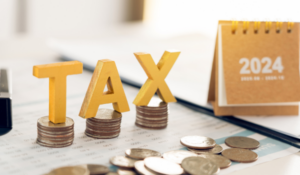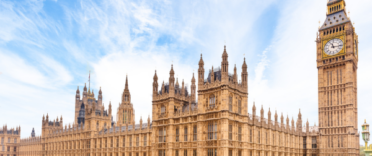 On 30th October 2024 the Chancellor of the Exchequer, Rachel Reeves, announced that defined contribution pensions will be included within a deceased person's estate for inheritance tax purposes. This is set to have a significant impact on the attractiveness of pensions when planning how to pass assets on to descendants in the most tax-efficient way possible. It may also alter how those in retirement choose to draw an income from their investments and pensions. In this article, I explain the current rules relating to pensions and inheritance tax, the impact of the Budget and when the new rules come into force.
On 30th October 2024 the Chancellor of the Exchequer, Rachel Reeves, announced that defined contribution pensions will be included within a deceased person's estate for inheritance tax purposes. This is set to have a significant impact on the attractiveness of pensions when planning how to pass assets on to descendants in the most tax-efficient way possible. It may also alter how those in retirement choose to draw an income from their investments and pensions. In this article, I explain the current rules relating to pensions and inheritance tax, the impact of the Budget and when the new rules come into force.
Current rules surrounding pensions and inheritance tax
Inheritance tax (IHT) is a tax charged on a person's estate when they die. Typically, the rate of inheritance tax is 40% and only applies on the value of your estate above the inheritance tax threshold which currently stands at £325,000 per person. If you have a home which you are leaving to your direct descendants, you can also benefit from the residence nil-rate band (RNRB) which is currently £175,000. Any unused part of these thresholds can be added to your partner’s threshold when you die, if you're married or in a civil partnership. In addition, you can pass everything on to your partner without your estate paying any inheritance tax.
At the moment, defined contribution pensions do not attract inheritance tax when they are passed on to beneficiaries as they fall outside of your estate. If you die before you are aged 75, you can pass on your entire defined contribution pension fund free from tax (including inheritance tax).
Once you are aged over 75, your beneficiaries can still inherit your pension, free from IHT, but withdrawals from the fund attract income tax at their highest marginal income tax rate. This means that pensions have become an important tool in inheritance tax planning.
It is one of the reasons why those concerned about a potential inheritance tax liability will look to draw down from their defined contribution pension as a last resort, instead opting to draw an income from other assets that will form part of their estate when they die.
Pensions & inheritance tax rule change
In the Autumn Budget there was a significant change to the way that defined contribution pensions will be treated for inheritance tax purposes. It was announced that:
"The government will bring unused pension funds and death benefits payable from a pension into a person’s estate for inheritance tax purposes from 6 April 2027. This will restore the principle that pensions should not be a vehicle for the accumulation of capital sums for the purposes of inheritance, as was the case prior to the 2015 pensions reforms".
The good news is that there will be no retrospective or immediate change to the rules surrounding the inheritance tax treatment of pensions following death. All changes will be implemented from April 2027 following an interim period of consultation. The bad news of course is that the rule change will ultimately have a considerable impact on the amount that those with sizeable pension funds will be able to shelter from inheritance tax when they die, when leaving assets to someone other than their spouse or civil partner.
The government has stated that the change will only impact around 8% of estates each year, but it will still generate £640 million in extra tax revenue in the 2027/28 tax year, £1.35 billion in the 2028/29 tax year and £1.46 billion in the 2029/30 tax year. Part of that increase will of course come from the fact that the freeze on the inheritance tax threshold (set at £325,000) is set to be extended to 2030, meaning more estates will be liable to inheritance tax.
How the transition from the current regime, where defined contribution pensions can be inherited free from IHT, to the new regime, where IHT will be applied, has not been confirmed. Instead there will be a period of industry consultation until 22nd January 2025 after which the government will draft legislation later in 2025.
New pension IHT planning strategies
The proposed change to the IHT treatment of defined contribution pensions brings them more in line with how defined benefit (final salary) pensions are treated for inheritance tax, but it reduces the attractiveness of pensions as vehicles to mitigate IHT. However, other IHT rules, not related to pensions, remain unchanged as a result of the Budget. So, for example, married couples or those in civil partnerships will still be able to inherit assets from one another without paying IHT, including pensions. It's only when pensions are left to a beneficiary other than your spouse or civil partner that the pension will be included in an estate for IHT purposes from 2027.
In addition, gifts to a third party still will fall under the Potential Exempt Transfer (PET) rules, which means that any gift is not subject to inheritance tax as long as the person making the gift does not die within 7 years from the date the gift was made. Therefore, someone could still choose to withdraw their pension tax-free cash entitlement (or other lump sums which are taxable) from a defined contribution pension and gift it in the hope that it falls outside of the IHT regime if they survive 7 years.
The new rule change may also lead to some people looking into drawing an income from their pension and gifting it, so exploiting the rule that regular gifts from surplus income are free from IHT, as long as the gift does not reduce their standard of living, Finally, those with large defined contribution pensions may consider withdrawing more money from their pension or purchasing an annuity.
Ultimately the changes made in the Budget do not require an immediate response from those with a defined contribution pension, instead they should consider all of their options and seek financial advice. If you don't have a financial adviser already but are concerned about inheritance tax then you can book a free, no obligation inheritance tax consultation with a financial adviser* .





